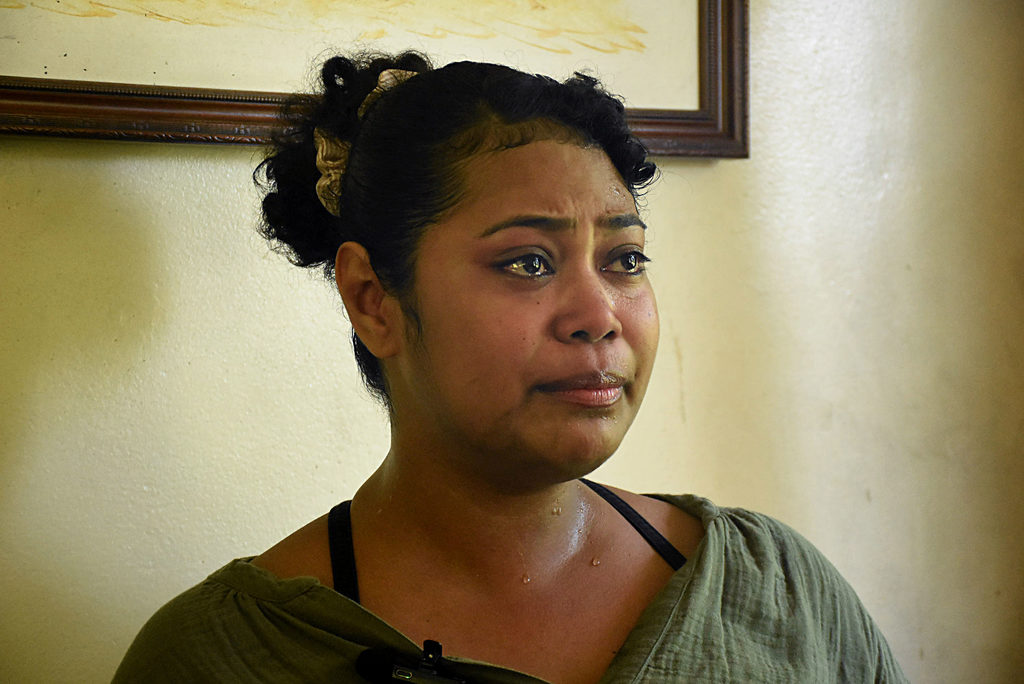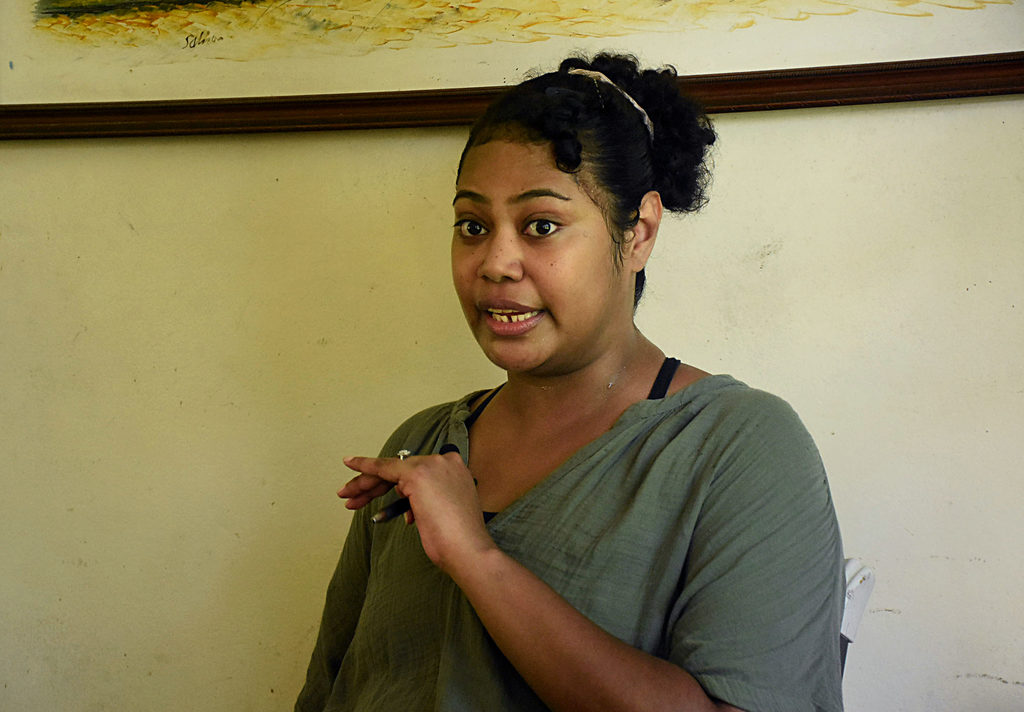FOR more than 10 years, Anareta Matainadroga lived a life completely dependent on medication. Frustrated, she decided to take a risk and go off medication in 2019 for two years.
That experience, says the 27-year-old from Nahigatoka, Nadroga, didn’t end well.
“I was fed up of living on medication,” she said.
“Out of nowhere, my life was always about medicine. I tried to go off it once and it didn’t end well. It ended badly for me.
“I went through withdrawals – joint pains more severe and constant, the fatigue was heavier, the brain fog thicker. Even then, I was still hell bent that I could live without medication.”
Ms Matainadroga said it wasn’t until she started getting painful skin infections that triggered fevers that she decided to go back on medication.
“Everything else I was experiencing was almost as if I was just living through a flare-up, yet somehow when the boils started to appear and the scarring, I couldn’t live with that discomfort and that’s when I checked myself back into a hospital.”
She said she didn’t realise then she was experiencing withdrawal symptoms.
“The fatigue, joint pain, mental fog – I was so used to that being my ‘normal’ that I just kept pushing through. But it wasn’t just a flare-up.
“It was my body adjusting to suddenly being without the meds that had been keeping it stable. The scary part is, the symptoms felt familiar but they were actually signs that things were going downhill fast.
“It’s like I had normalised suffering to the point where I couldn’t tell the difference anymore.”
Another challenge she had to deal with was moving at her own pace.
“The frustrating thing about having a chronic illness is having to take things slow in a fast-moving world. I can be enjoying something I’m doing but because of this illness I have to take it slow.
“I had to sit out exams because the stress was too much so I couldn’t finish my courses. I would have loved to graduate faster and start life earlier but everything has to move at my pace.”
Having lived with lupus for 15 years since being diagnosed in 2010, Ms Matainadroga says she’s still trying to cope.
“I can’t say I’ve figured it out, but I can say I’ve learned to manage it better,” she said.
“I know now to not stress over things. That’s the most important thing I’ve learnt to do – to pace myself and not stress over anything.”
“After being diagnosed, it didn’t hit me then that I had a chronic illness.
“I thought it was very normal and that most other adults live like this. I didn’t realise it was not normal to be constantly tired.”
She said sometimes she would catch herself having to act sick to prove she was not well even though she didn’t look sick.
Prior to being diagnosed with lupus, Ms Matainadroga said she had been diagnosed with asthma, anaemia, leukaemia, and haemolytic anaemia.
“Life in the hospital was very normal for me – to be in and out of the hospital. The symptoms can easily be dismissed but I was very lucky to be diagnosed at a young age.
“I couldn’t take part in sports when I was in school because I would get chronic fatigue. I struggled with brain fogs and confusion especially on big days that required a lot of activity.
“This brain fog, people associate it with me being slow which is not fair.”
Her biggest frustration, she said, was the unpredictability of lupus.
“I can’t anticipate my symptoms. Today is a good day for me, I have a bit of swelling although you can’t see it. That’s the thing with lupus – it’s an invisible illness. Everything happens inside. With lupus, most of us look fine but you can never tell.
“Some mornings it’s hard to get out of bed. We have no choice, we have to push ourselves. It’s a fast-paced world we live in and we can’t choose to stay in bed.
“I’m lucky I have a very good support system. They’ve seen me with this from a very young age so when they see I don’t get up in the morning, no questions are asked. And I’m very grateful for that.”
Ms Matainadroga is urging government to invest more in awareness and education efforts on lupus and is also calling on employers to be understanding towards employees living with illnesses such as lupus.
“I would encourage them to educate themselves on what the person is going through and show compassion and kindness.
“I know other patients who are doing well – we have engineers living with lupus and I wonder how they cope.
“We take immunosuppressants because our immune system is very hyper and it attacks us so we need to calm it down.”
Ms Matainadroga still takes a few risks from time to time.
“Stress and sunlight are personal triggers. For me, an hour in the sun means I start getting rashes, dizzy and that’s a terrible way to live when you live in a hot country and there’s no way of avoiding the sunlight.
“But what am I to do? Sometimes I just go and do things – I live in a hot country.
“So I take the risk, I don’t want this illness to always dictate me.
“When I want to, I go out and spend the day in the sun knowing it will trigger a flare-up later. That’s what it’s like living with a chronic illness.”
Anareta Matainadroga emotionally shares her story during an interview in Suva on Wednesday, 30th April 2025. Picture: KATA KOLI



